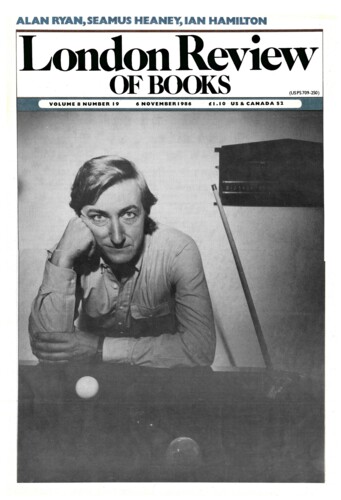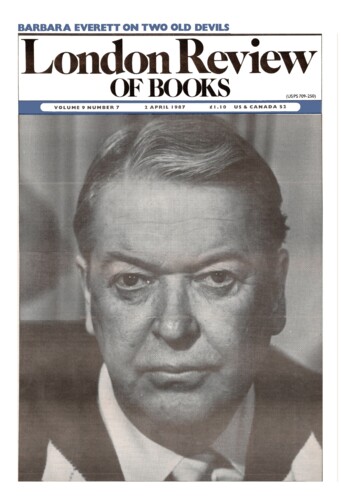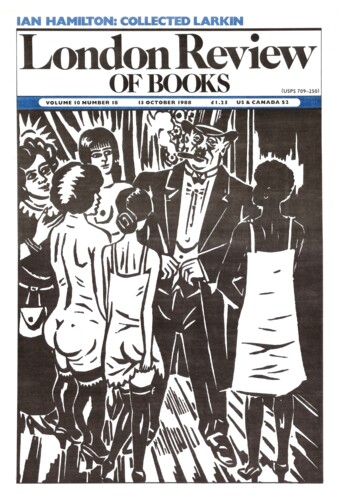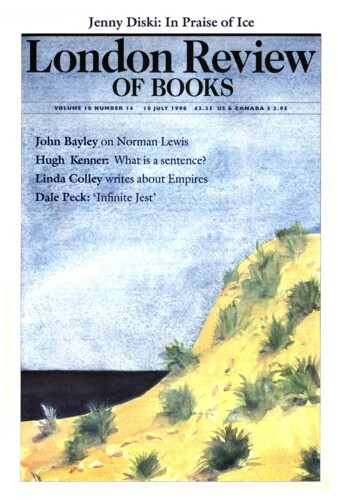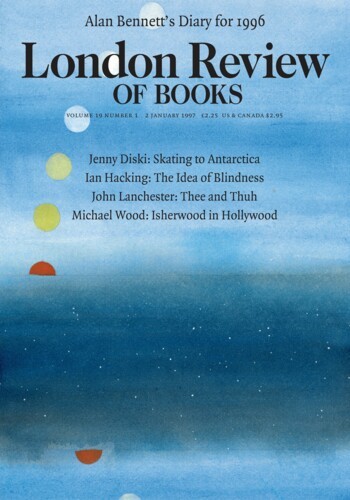Keeping the show on the road
John Kerrigan, 6 November 1986
‘The Professor was not always right,’ declared H.D. after analysis in Vienna. Her judgment seems rather generous. Reading her Tribute to Freud, one can’t ignore the emotional and interpretative coercion that went on at 19 Berggasse under the name of science. To an alarming degree, theory preempted argument. H.D. had been abandoned by her husband, Richard Aldington, for another woman, during a difficult pregnancy in which mother and child seemed doomed; her love affair with the feminist Bryher was fraught; writing set up its own strains: but Freud already knew, amid this welter of anxieties, what really worried the patient. Had he not just shown, in the lecture on ‘Femininity’ (1933), that women are driven by a penis-envy which may be sublimated into some vague desire for intellectual achievement but which can only be allayed by bearing a child, preferably male, as phallus? If H.D. dreamt of a princess stepping down towards water, to find and protect a baby, while she stood by as witness, did this not demonstrate the patient’s longing to possess the penis? Never mind the trauma of childbirth. Did it not recall the finding among bullrushes of that founder who had fascinated Freud since his 1914 essay on Michelangelo’s Moses? Well of course this hadn’t occurred to H.D. Freud, after all, had thought harder than she had about totemic leaders with rebellious followers – like Adler and Jung – and he, not the patient, was gestating Moses and Monotheism. In short, it’s hard to know where to look when H.D. regrets the death of Freud’s disciple, Van der Leeuw, and the master replies: ‘You have come to take his place.’ Someone had to; the succession needed securing; naturally, ‘the Professor insisted I myself wanted to be Moses … a boy … a hero.’’
